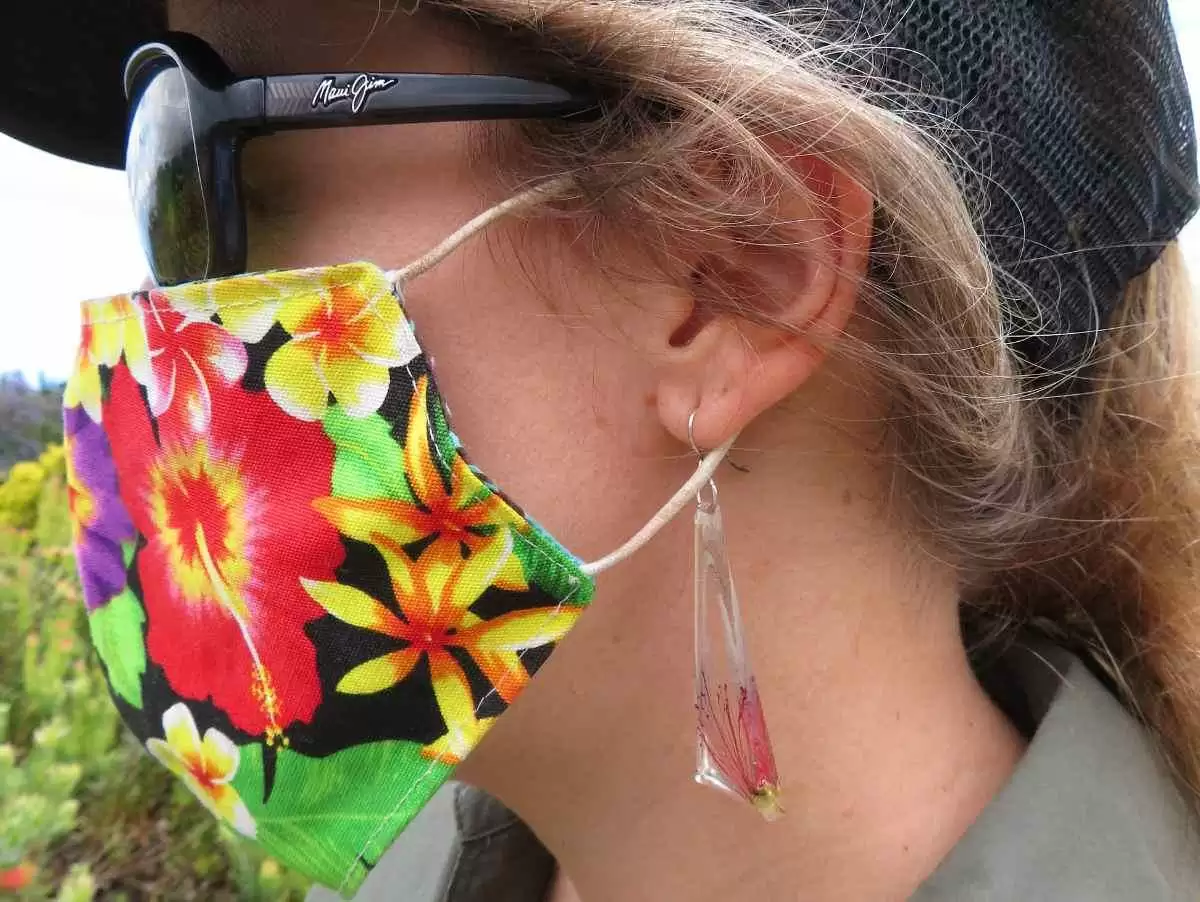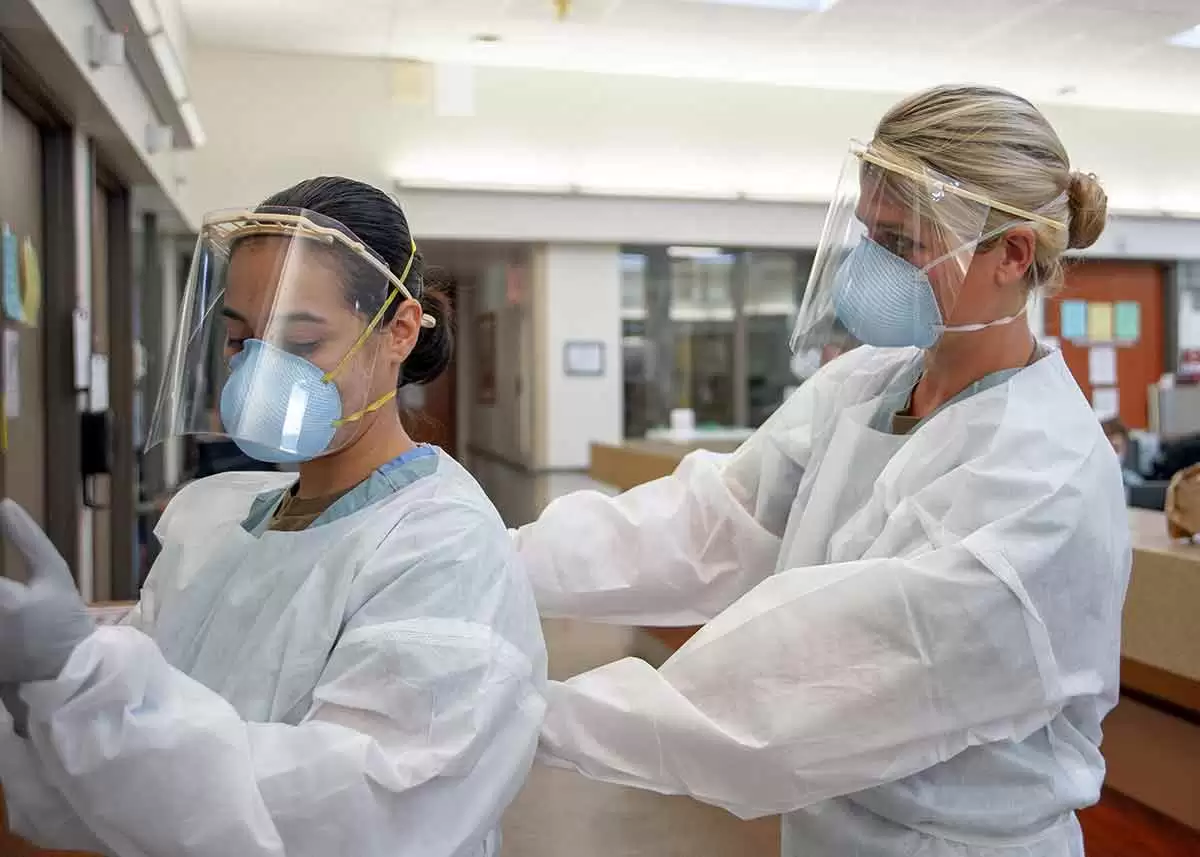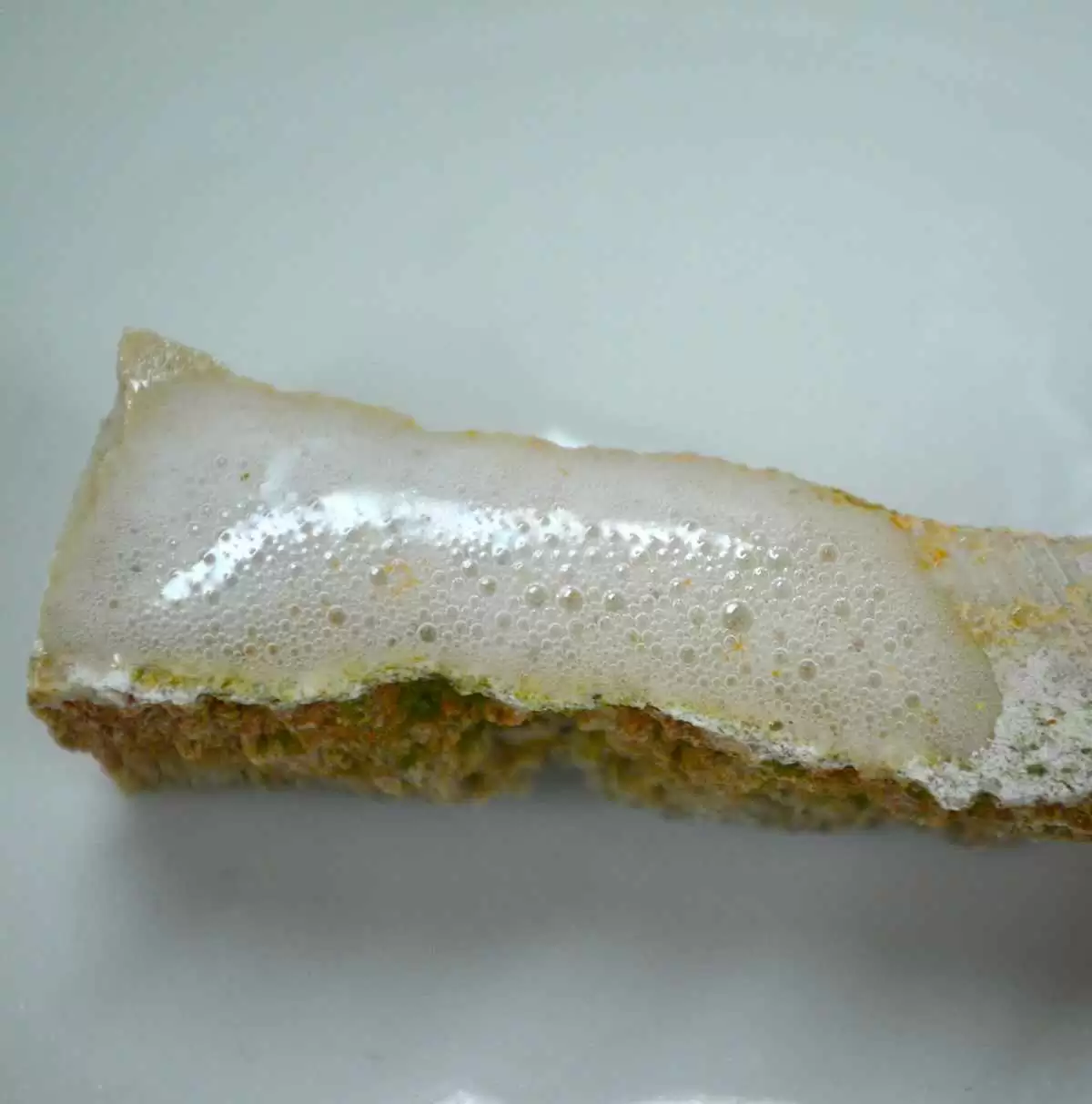-
Welcome to Celiac.com!
You have found your celiac tribe! Join us and ask questions in our forum, share your story, and connect with others.
-
Celiac.com Sponsor (A1):
Celiac.com Sponsor (A1-M):
-
Get Celiac.com Updates:Support Celiac.com!
Search the Community
Showing results for tags 'risk'.
-
Celiac.com 04/01/2024 - Recent research has shed light on a concerning correlation between celiac disease and various reproductive disorders in women, emphasizing the importance of awareness and proactive healthcare measures for individuals living with this autoimmune condition. According to a study presented at the 2023 annual meeting of the American College of Gastroenterology by lead researcher Rama Nanah, MD, patients with celiac disease face significantly elevated risks for several female reproductive disorders compared to those without the condition. The study, drawing from the comprehensive TriNetX database, revealed that women with celiac disease have a two times higher risk for endometriosis, three times higher risk for polycystic ovary syndrome (PCOS), and six times higher risk for ovarian dysfunction. The association between celiac disease and female reproductive disorders has been noted in previous studies, but the latest findings add new dimensions to our understanding. Notably, the study uncovered increased rates of PCOS and endometriosis among women with celiac disease, highlighting the urgent need for further investigation into these connections. A Range of Reproductive Health Abnormalities Associated with Celiac Disease The retrospective analysis, which included over 9,000 women with celiac disease and more than 25 million healthy controls, revealed a range of reproductive health abnormalities associated with celiac disease across different age groups. These include menstrual irregularities, delayed menarche, infertility, recurrent pregnancy loss, and pain associated with menstruation. Despite the compelling data, the exact mechanism underlying the association between celiac disease and reproductive disorders remains unclear. Dr. Nanah emphasized that the study did not establish causality, nor did it provide insights into whether adherence to a gluten-free diet could mitigate reproductive risks. While the study underscores the importance of considering undiagnosed celiac disease in women with gynecologic disorders, it also highlights the need for prospective studies to validate these findings and explore potential screening and risk reduction strategies. Benjamin Lebwohl, MD, MS, director of clinical research at the Celiac Disease Center at Columbia University, stressed the importance of future research to further elucidate these associations and inform evidence-based healthcare practices. For individuals living with celiac disease, the study underscores the importance of comprehensive healthcare management that includes regular screenings and discussions about reproductive health. By raising awareness and advancing research in this area, healthcare professionals can better support the unique needs of women with celiac disease, ultimately improving their overall quality of life and well-being. Read more at Gastroendonews.com
-
- celiac disease
- female
-
(and 5 more)
Tagged with:
-
Celiac.com 03/11/2024 - Celiac disease, a condition triggered by gluten sensitivity in genetically susceptible individuals, affects approximately 1% of the global population. Traditionally, diagnosing celiac disease involves a stepwise process, beginning with blood tests to detect antibodies against tissue transglutaminase (tTG), followed by an invasive duodenal biopsy to confirm the diagnosis. However, this biopsy procedure poses risks and discomfort to patients. Recent research has explored the feasibility of diagnosing celiac disease without the need for a biopsy, relying solely on serological markers. A team of scientists conducted a retrospective analysis of medical records from biopsy-diagnosed celiac disease patients. They specifically examined the correlation between the severity of intestinal damage, as assessed by Marsh grading, and levels of anti-tTGA antibodies in the blood. The research team included Parul Punia, Kiran Bala, Mansi Verma, Ankita Nandi, Parveen Mahlotra, Sunita Singh, Seema Garg, Aparna Parmar, and Devender Kumar. They are variously affiliated with the departments of Microbiology, Pandit Bhagwat Dayal Sharma Post Graduate Institute of Medical Sciences, Rohtak, IND; Microbiology, PGIMS, Rohtak, IND; Gastroenterology, PGIMS, Rohtak, IND; and Microbiology, bps khanpur gmch, Sonepat, IND. Severity of Marsh Lesions Corresponds to Anti-tTGA Antibody Levels Their study included 94 symptomatic celiac disease patients with available anti-tTGA antibody reports. Among these patients, those with more severe intestinal damage, categorized as Marsh grade 3 lesions, consistently exhibited higher levels of anti-tTGA antibodies. Remarkably, serum antibody levels exceeding ten times the upper limit of normal (ULN) were strongly associated with Marsh grade 3 lesions. These findings suggest that in symptomatic adults with celiac disease, the severity of intestinal damage may be accurately predicted using blood tests alone, without the need for invasive biopsies. Specifically, anti-tTGA antibody levels exceeding ten times the ULN could serve as a reliable indicator of Marsh grade 3 lesions. Adopting a non-biopsy approach to diagnose celiac disease could offer several benefits, including reduced patient discomfort, avoidance of procedural risks, and potentially faster diagnosis and initiation of treatment. However, further research and validation studies are warranted to confirm the reliability and effectiveness of this approach across diverse patient populations. In conclusion, the non-biopsy approach for diagnosing celiac disease represents a promising avenue for improving patient care, and diagnostic efficiency, in people with celiac disease. Read more at Cureus.com
- 3 comments
-
- biopsy
- celiac disease
-
(and 4 more)
Tagged with:
-
Celiac.com 06/19/2023 - A recent study conducted by Claire Jansson-Knodell, MD, from the department of gastroenterology, hepatology, and nutrition at the Cleveland Clinic, has revealed that women with celiac disease face an increased risk of complications during pregnancy and delivery. The study aimed to examine pregnancy outcomes by analyzing a large database of maternal, obstetrical, and neonatal outcomes in mothers with celiac disease. Here are some highlights. Study Looked at Data from Pregnant Women Who Delivered Between 2015 and 2019 The study utilized the National Inpatient Sample, which included data from pregnant women who delivered between 2015 and 2019. Out of over 12 million births, the researchers identified 10,555 cases involving women with celiac disease. Pregnant Women with Celiac Disease at Higher Risk of Pregnancy and Delivery Complications According to the findings presented at Digestive Disease Week, pregnant women with celiac disease exhibited a higher risk of experiencing complications related to pregnancy and delivery compared to women without celiac disease. Additionally, they had longer hospital stays, although the rate of maternal mortality did not significantly differ between the two groups. One significant finding was that women with celiac disease had lower odds of having a full-term and uncomplicated delivery. The study also identified a heightened risk of hypertensive diseases of pregnancy, as well as placental diseases such as abruption and placenta previa, among women with celiac disease. Furthermore, women with celiac disease more frequently required assistance during delivery, such as the use of vacuum or forceps, and were at a greater risk of third- or fourth-degree tears. However, the study did not observe higher rates of C-sections among women with celiac disease. The study also revealed that babies born to women with celiac disease were more likely to be small for their gestational age and experience fetal distress. Conclusions Based on these findings, Jansson-Knodell suggests that healthcare providers should consider these risks when caring for patients with celiac disease who are pregnant or planning to become pregnant. Additional attention and care should be provided to address the potential complications associated with pregnancy and delivery in this population. In summary, this study highlights the increased risk of pregnancy and delivery complications faced by women with celiac disease. The findings underscore the importance of comprehensive care and management for pregnant women with celiac disease to mitigate these risks and ensure optimal outcomes for both mothers and babies. Read more at Helio.
- 16 comments
-
- celiac disease
- complication
-
(and 6 more)
Tagged with:
-

Study Explores the Link Between Covid-19 and Celiac Disease
Jefferson Adams posted an article in Latest Research
Celiac.com 06/12/2023 - Celiac disease is an autoimmune disorder characterized by gastrointestinal symptoms and nutrient deficiencies. While genetic factors, particularly HLA association, play a significant role in its development, the exact environmental triggers remain unclear. Recent studies have proposed infections as potential contributing factors. With the Covid-19 pandemic causing a systemic inflammatory response and affecting the gastrointestinal tract, researchers in southern Sweden set out to investigate whether Covid-19 infection could increase the risk of developing celiac disease. The research team included Jesper Lexner, Ylva Lindroth and Klas Sjöberg. They are variously affiliated with the Department of Gastroenterology and Nutrition, Department of Clinical Sciences, Skåne University Hospital, Lund University, Malmö, Sweden; and the Division of Medical Microbiology, Department of Laboratory Medicine, Skåne University Hospital, Lund University, Lund, Sweden. The Covid-19 and Celiac Disease Connection To explore the potential association between Covid-19 infection and celiac disease, the researchers identified all patients, including children and adults, in the county of Skåne with newly diagnosed biopsy- or serology-verified celiac disease or positive tissue transglutaminase antibody tests (tTG-ab) from 2016 to 2021. They also identified individuals who tested positive for Covid-19 using PCR or antigen tests in 2020 and 2021. The Findings During the period from March 2020 to December 2021, there were 201,050 cases of Covid-19 in Skåne, and among them, 568 patients were diagnosed with celiac disease or had positive tTG-ab tests. Interestingly, only 35 of these patients had previously been infected with Covid-19. Contrary to initial expectations, the incidence of verified celiac disease and tTG-ab positivity was lower during the Covid-19 pandemic compared to before. The incidence rates of celiac disease were 21.1 and 22.4 cases per 100,000 person-years for patients with and without prior Covid-19 infection, respectively. Implications of the Study The findings of this study suggest that Covid-19 infection is not a significant risk factor for the development of celiac disease. While previous research has indicated that gastrointestinal infections may play a role in the pathogenesis of celiac disease, respiratory infections, such as those caused by the SARS-CoV-2 virus, appear to have less relevance in this regard. Study Limitations It is important to note that this study focused on a specific region in southern Sweden and the findings may not be generalizable to other populations or geographic areas. Further research involving larger and more diverse populations is warranted to validate these findings. Additionally, the study did not explore potential mechanisms underlying the connection between gastrointestinal infections and celiac disease pathogenesis, highlighting the need for future investigations in this area. Understanding the environmental triggers and risk factors associated with celiac disease is crucial for improving diagnosis, treatment, and prevention strategies. While the Covid-19 pandemic has posed significant challenges worldwide, this study suggests that Covid-19 infection does not increase the risk of developing celiac disease. Read more in BMC Gastroenterology volume 23, Article number: 174 (2023)- 1 comment
-
- celiac disease
- connection
-
(and 4 more)
Tagged with:
-
Celiac.com 05/27/2023 - Malignancy must be a concern for all of us with celiac disease. The association between increased mortality in celiac disease due to malignant disease has been known since 1962(1) . Subsequent studies have confirmed various types of malignancies occurring in celiac patients with the most frequent being lymphomas, which account for 51-72% of celiac disease-associated malignancy(2, 3) . Both small bowel lymphomas and adenocarcinoma, the most frequent celiac disease-associated malignancies, typically arise in the jejunum but also are found in the duodenum and ileum(2) . Other sites of carcinoma found in greater than expected numbers have been the mouth, pharnyx, lung, breast, and testes2, 3. Celiac disease-associated cancer is found in both child and adult celiacs(2). Enteropathy associated T-cell lymphoma (EATL) of the small bowel is the major lymphoma associated with celiac disease(2, 4). This type of non-Hodgkin lymphoma appears to be primarily associated with celiac disease and is known to increase in people with celiac disease who are 50-70 years of age(4) . There appears to be two forms of EATL, and one of them may originate during refractory celiac disease(2,4). Abnormalities in refractory celiac disease lymphocytes are similar to those of this form of EATL(3) . While the majority of patients with celiac disease have improved symptoms with a strict gluten-free diet, those with refractory celiac disease may be non-responsive because of complications due to the development of EATL(5). The Importance of a Gluten-Free Diet The exact rate of malignancy in celiac disease is unknown since much of the silent or asymptomatic form of the disease remains undiagnosed(5) . Also, the celiac disease status of patients with established lymphoma may never be determined, or may be missed at examination(2, 5). However, European studies have shown an increased mortality rate due to malignancies in celiac disease as high as two to nearly four times that of the non-celiac disease population(2) . Most deaths occurred in the first 3-4 years after diagnosis. Several studies have demonstrated the protective effect of a strict gluten-free diet against malignancy(2, 5) . There appears to be a clear correlation between increased cancer rates (comparing the celiac disease and non-celiac disease populations) and the amount of gluten ingestion. In one of the studies, the excess morbidity of patients on a strict gluten-free diet was only 1.2 compared to 10.7 in patients on a normal (gluten-containing) diet(5). After 5 years or more on a strict gluten-free diet, there appears to be no significant increase in the overall cancer risk compared to the non-celiac disease population. Furthermore, a strict gluten-free diet appears to specifically reduce EATL(6). The Importance of Early Diagnosis Conferring the protective effect of a gluten-free diet with early diagnosis is important in malignancies like lymphoma, which has a poor prognosis(5). The expected five-year survival of advanced small bowel lymphoma is 25-30%; that of intestinal T cell lymphoma is only about 25%7 . Furthermore, gastrointestinal lymphomas often are presented as high grade (i.e., more advanced) malignancy, and are often widespread(5,6). Unfortunately some cases of celiac disease are not diagnosed until presentation of lymphoma. T-cell lymphomas most often arouse the suspicion of undiagnosed celiac disease, but B-cell lymphomas exist in celiac disease as well(8). However, the diagnosis of lymphoma can be difficult to ascertain due to non-specific symptoms or symptoms similar to celiac disease(5,7). Presenting features of gastrointestinal lymphoma are similar to that of uncomplicated celiac disease; "Unexplained deterioration, abdominal pain, weight loss, severe muscle weakness, lymphadenopathy (disorder of the lymph nodes), abdominal mass and pyrexia (fever) should arouse suspicion of lymphoma."(5). Some patients may also have intestinal obstruction, perforation, or bleeding. Furthermore, patients with small bowel tumors (including adenocarcinoma) may present with abdominal pain, anemia, bleeding, weight loss, or obstruction(2, 7). Therefore, Ruskone-Fourmestraux and Rambaud suggest that "the diagnosis of coeliac disease must be made as early as possible and the diet commenced, even in asymptomatic subjects, after detailed and complete patient information."(6). Once diagnosed, therapy for lymphoma or adenocarcinoma may include surgery (such as resection of a portion of the intestine), chemotherapy, and/or radiotherapy(5). Regarding cancer, there is both good and bad news for those of us with celiac disease. While we have an increased risk of cancer, the risk is still very small for most celiacs. The symptoms of gastrointestinal cancers, and especially small bowel cancers, are similar to those of celiac disease itself. It appears, however, that with the exception of refractory celiac disease, a strict gluten-free diet over time may remove the increased chance of cancer due to celiac disease. Undeniably, our vigilant adherence and attitude toward the gluten-free lifestyle must be a mainstay and we must be up to the challenge. References: Gough KR, Read AE, Naish JM. 1962. Intestinal reticulosis as a complication of idiopathic steatorrhea. Gut 3: 232-39. Green PHR, and Jabri B. 2002. Celiac disease and other precursors to small-bowel malignancy. Gastroenterol Clin N Am 31:625-39. Seraphin P, and Mobarhan S. 2002. Mortality in patients with celiac disease. Nutrition Rev 60: 116-8. Catassi C, et al. 2002. Risk of non-Hodgkin lymphoma in celiac disease. JAMA 287:1413-9. Holmes GKT. 2002. Coeliac disease and malignancy. Digest Liver Dis 34:229-37. Ruskone-Fourmestraux A, and Rambaud JC. 2001. Gastrointestinal lymphoma: prevention and treatment of early lesions. Best Practice & Res Clin Gastroenterol 15:337-54. Gill SS, Heuman DM, and Mihas AA. 2001. Small intestinal neoplasm. J Clin Gastroenterol 33: 267-82. Freeman H, Lemoyne M, and Pare P. 2002. Coeliac disease. Best Pract & Res 16:37-49.
-
- cancer
- celiac disease
-
(and 5 more)
Tagged with:
-
Celiac.com 07/01/2021 - We get a lot of questions from celiac community members wondering about various aspects of celiac disease. One question we see a lot is about how genetic makeup influences the odds of developing celiac disease. Specifically, what are the odds of developing celiac disease based on HLA-DQA/DQB genotypes? Here's a breakdown of the odds by genotype combination. The odds of developing celiac disease based on HLA-DQA/DQB genotypes is as follows: DQ2+DQ8 1:7 (14.3%) DQ2+DQ2 OR DQ2 Homozygous DQB1*02 1:10 (10%) DQ8+DQ8 1:12 (8.42%) DQ8+DQ8*02 1:24 (4.2%) Homozygous DQB1*02 1:26 (3.8%) DQ2 only 1:35 (2.9%) DQ8 only 1:89 (1.1%) General Population - Genotypes unknown 1:100 (1%) ½ DQ2*DQB1*02 1:210 (0.5%) ½ DQ2*DQA1*05 1:842 (0.05%) No HLA-DQA/DQB susceptible alleles 1:2518 (0.04%) Testing for celiac disease should be done using FDA-approved HLA test kits. HLA-DQA/DQB genotyping typically provides detection of DQ2 (DQA1*0501, DQA1*0505, and DQB1*0201/*0202) and DQ8 (DQB1*0302) For example: HLA-DQ2(DQA1*05/DQB1*02) Positive or Negative HLA-DQ8(DQA1*03/DQB1*0302) Positive or Negative A testing report typically includes DQ2, DQ8, half DQ2, homozygosity for DQB1*02, and complete DQA and DQB genotypes, along with an easy-to-interpret risk assessment.
- 6 comments
-
- celiac disease
- genetic
-
(and 5 more)
Tagged with:
-
Celiac.com 04/18/2023 - The collective wisdom is that people with celiac disease should avoid eating French fries cooked in fryers shared with wheat products. But what's the real story? Is there any science to back up the idea? It turns out, there is. A research team recently assessed gluten levels in French fries that were free of gluten-containing ingredients, but were cooked in shared fryers with wheat-containing foods. Here's the rundown. To do so, researchers bought 20 orders of fries from 10 different restaurants and tested them for gluten levels using two different ELISA tests. All the restaurants confirmed that their fryers were used to cook both gluten-free and wheat-containing foods. Study Results Showed Gluten Contamination is Common when Gluten-Free Foods are Cooked in Shared Wheat Food Fryers According to the sandwich ELISA test, gluten was found in 9 out of 20 fry orders, ranging from 7 to over 80 ppm gluten. The competitive ELISA test found gluten in 3 out of 20 fry orders, ranging from 14 to over 270 ppm gluten. However, the study also noted that ELISAs may underperform when analyzing for gluten that has been heated. The findings suggest that one out of four French fry orders would not be considered gluten-free, which suggests that individuals with celiac disease may risk gluten exposure when eating fried foods cooked in fryers shared with wheat-containing foods. The study emphasizes the importance of informing individuals with celiac disease and other gluten-related disorders about the potential risks of consuming fried foods cooked in shared fryers, and the need for food service establishments to adopt policies to prevent gluten contamination. This study is important for people with celiac disease, who must avoid gluten completely to manage their condition, and for whom even trace amounts of gluten can cause harm. The results suggest that many restaurants may not fully understand the risks of cross-contamination when cooking gluten-free foods in shared fryers. Unreliable ELISA Results for Heated Foods This study also highlights the limitations of using ELISA tests to detect gluten in heated foods, as the tests may underperform in these situations. This may suggest that the actual gluten levels in the fries could be higher than what was detected in the study. Because of this, people with celiac disease need to be aware of this risk and probably want to avoid French fries, or any other products, cooked in shared fryers. More research is probably needed to determine the exact extent and conditions of gluten contamination in shared fryers, and to develop better testing methods to accurately measure gluten levels in heated foods. But even in the absence of further data, cross-contamination of gluten-free foods cooked in shared fryers is definitely an issue for people with celiac disease, and those affected should avoid eating any food that is cooked in a fryer that is also used to cook products that contain wheat. Here's an article on where people with celiac disease or gluten sensitivity can get decent fast food French fries.
- 31 comments
-
- celiac disease
- contamination
-
(and 8 more)
Tagged with:
-
Celiac.com 04/10/2023 - The association between celiac disease and the development of small bowel lymphoproliferative disorders and esophageal adenocarcinoma is well-established, but there is limited evidence of an increased risk of colorectal cancer in these patients. Cross-sectional Population-based Study To evaluate the risk of developing colorectal cancer in patients with celiac disease a team of researchers recently conducted a cross-sectional population-based study using a commercial database that contains the electronic health records from 26 major integrated US healthcare systems. The team included patients aged 18-65 years of age, and excluded those with inflammatory bowel disease. They used multivariate analysis to calculate the risk of developing colorectal cancer, adjusting for potential confounders. The Researchers The research team included Somtochukwu Onwuzo; Antoine Boustany; Mustafa Saleh; Riya Gupta; Chidera Onwuzo; Jessy Mascarenhas Monteiro; Favour Lawrence; Chinenye Emeshiobi; Juliana Odu; and Imad Asaad. They are variously affiliated with the departments of Internal Medicine and Department of Gastroenterology at the Cleveland Clinic Foundation in Cleveland; the Faculty of Medical Sciences at Lebanese University in Beirut, LBN; the Faculty of Medicine in Kasturba Medical College, Mangalore in Mangalore, IND; the department of Internal Medicine and the General Hospital Lagos Island in Lagos, Nigeria; the department of Internal Medicine at the Ross University School of Medicine in Bridgetown, Barbados; the department of Internal Medicine at Mercy Hospital in Fort Smith, USA; and the department of Public Health at the University of Toledo in Toledo, Ohio, USA. Their Findings: Patients with Celiac Disease Face an Increased Risk of Developing Colorectal Cancer The team's cross-sectional population-based study showed that patients with celiac disease face an increased risk of developing colorectal cancer, even after adjusting for common risk factors. Their findings suggest that patients with celiac disease are frequently diagnosed with colorectal cancer, indicating that the disease may involve other parts of the gastrointestinal tract besides the small bowel. The results highlight the importance of screening patients with celiac disease for colorectal cancer, even in the absence of traditional risk factors. These findings could help to improve the management and follow-up of patients with celiac disease, especially with regard to diagnosis and prevention of colorectal cancer. Read more at Cureus.com
-
- association
- cancer
- (and 8 more)
-
Celiac.com 03/30/2023 - A study recently published in the Journal of the American Academy of Dermatology shows that people with psoriasis have twice the odds of having celiac disease compared to those without psoriasis. The study is the work of a research team that included Marina Z. Joel, BS; Ryan Fan, BA; and Jeffrey M. Cohen, MD. They are variously affiliated with the Johns Hopkins University School of Medicine, Baltimore, Maryland; the Yale School of Medicine, and the Department of Dermatology at Yale School of Medicine, New Haven, Connecticut. The Psoriasis & Celiac Disease Study For their study, the Ms. Joel and her colleagues examined the association between psoriasis and celiac disease. They used data from 316,166 adults, and found that of the 6,476 patients with psoriasis, 1.65% had celiac disease compared to nearly 0.5% of 309,690 patients without psoriasis. The study controlled for various factors such as age, sex, race and ethnicity, smoking status, autoimmune diseases linked to psoriasis and celiac disease, and body mass index (BMI), and found that psoriasis remained significantly associated with celiac disease. Study Findings The authors note that while the exact mechanism behind this association is unclear, genome-wide association studies have found that many susceptibility loci for psoriasis overlap with those for celiac disease: “While the pathophysiologic mechanism behind the association between psoriasis and celiac disease is unclear, several explanations have been proposed. Genome-wide association studies have found that many susceptibility loci for psoriasis overlap with those for celiac disease," they write. They add that "both psoriasis and celiac disease are T-cell driven disorders, there could be shared immunogenic mechanisms between the two conditions." Although more research is needed to fully understand the link between psoriasis and celiac disease, studies that help to document connections between celiac disease and other disorders are very helpful in clarifying the overall celiac disease puzzle. Read more in Journal of the American Academy of Dermatology
-
- association
- celiac disease
-
(and 5 more)
Tagged with:
-

Celiac Disease Doubles COVID-19 Hospitalization Risk
Jefferson Adams posted an article in Latest Research
Celiac.com 03/20/2023 - People with celiac disease who contract COVID-19 are twice as likely to be hospitalized as non-celiacs, according to a new U.S. study, published online in Clinical Gastroenterology and Hepatology. However, the study also found that COVID-19 vaccination decreased the risk of hospitalization by nearly 50% for both groups. This is the first study to show the effect of vaccination on reducing the risk of hospitalization in patients with celiac disease and COVID-19 infection. Despite the increased risk of hospitalization, patients with celiac disease did not experience significant differences in intensive care unit requirement, mortality, or thrombosis compared to non-celiacs. The study suggests that celiac disease patients with COVID-19 are not inherently at greater risk for severe outcomes. The researchers compared COVID-19 incidence and outcomes between patients with and without celiac disease before and after vaccination and found similar outcomes between the two groups before vaccination. The study analyzed 171,763 patients diagnosed and treated for COVID-19 at the institution between March 1, 2020, and January 1, 2022, with 110 of those adults having biopsy-proven celiac disease. The median time from biopsy diagnosis of celiac disease to COVID-19 was 217 months, with more than 2 out of 3 patients following a gluten-free diet. Read more at Medscape Medical News- 3 comments
-
- celiac disease
- covid-19
-
(and 4 more)
Tagged with:
-
Celiac.com 02/13/2023 - Because earlier studies have been small, or relied on sources with limited socio-demographic and lifestyle data, there's conflicting information associating celiac disease with a higher risk of cardiovascular disease. Prior studies examining the ties between celiac disease and cardiovascular disease have often omitted traditional cardiovascular risk factors, such as blood pressure or serum total cholesterol, despite research showing healthier cardiovascular profiles in people with celiac disease. A team of researchers recently set out to investigate whether people with celiac disease are at increased risk of cardiovascular disease, including ischaemic heart disease, myocardial infarction, and stroke. The research team included Megan Conroy, Naomi Allen, Ben Lacey, Elizabeth Soilleux and Thomas Littlejohns. They are variously affiliated with theNuffield Department of Population Health, University of Oxford, Oxford, UK; the UK Biobank, Stockport, UK; and the Department of Pathology, University of Cambridge, Cambridge, UK. For their prospective analysis of a large group study, they turned to the UK Biobank database. From between 2006 and 2010, they pulled data on nearly 470,000 adults, just under 2,100 of whom had celiac disease. Participants were aged 40-69 years from England, Scotland, and Wales, and without cardiovascular disease at baseline. The team focused on the relative risk of cardiovascular disease, ischaemic heart disease, myocardial infarction, and stroke in people with celiac disease compared with people who do not have celiac disease, and used Cox proportional hazard models to determine risk levels. Over an average follow-up of about 12.5 years, the team found nearly 41,000 cardiovascular disease events, with about 220 events in celiac patients. Celiacs were less likely to smoke or have traditional cardiovascular risk factors, such as systolic blood pressure, total cholesterol, high body mass index. Even so, they had a higher rate of cardiovascular disease, than their non-celiac peers. Participants with celiac disease had an incidence rate of 9.0 cardiovascular disease cases per 1,000 person years compared with 7.4 per 1,000 person years in non-celiacs. The team connected celiac disease to an increased risk of cardiovascular disease, even adjusted for lifestyle factors. The connection was stronger after further adjusting for other cardiovascular risk factors. The team found similar connections between ischaemic heart disease and myocardial infarction, but noted fewer stroke events, and saw no evidence of a connection between celiac disease and risk of stroke. People with celiac disease had a fewer traditional cardiovascular risk factors, but still had a higher risk of developing cardiovascular disease than non-celiacs. Based on these findings, cardiovascular risk scores used in clinical practice may not adequately account for a the higher risk among celiacs. Ideally, this study will help people with celiac disease and their clinicians to improve their awareness regarding the higher cardiovascular risks, and to take relevant precautionary action. Still, more research is needed to improve our understanding of these connections. Read more at BMJ Medicine
- 10 comments
-
- association
- cardiovascular disease
- (and 5 more)
-
Celiac.com 06/28/2021 - There is a growing body of data to suggest the intestinal action of SARS-CoV-2, with ciliated cells and intestinal enterocytes serving as target cells, due to high expression of ACE2 and TMPRSS2, could possibly trigger celiac disease in predisposed individuals. Indeed, COVID-19 promotes a “cytokine storm” in the intestinal mucosa, triggering epithelial damage that increases barrier permeability, permitting gliadin to "leak" into the intestinal lamina. However, the possible impact of the SARS-CoV-2 infection, and the resulting disease, on celiac disease rates remains unknown, with no data currently available on the development of systemic disorder, or on long-term outcomes. A team of researchers recently set out to highlight the potential risk of a rise in celiac disease rates among genetically predisposed subjects following SARS-CoV-2 infection, based on several factors which could promote the development of celiac disease. The research team included Chiara Maria Trovato, Monica Montuori, Nicoletta Pietropaoli, and Salvatore Oliva. They are variously affiliated with the Pediatric Gastroenterology and Liver Unit, Maternal and Child Health Department, Sapienza University of Rome, Rome, Italy; and the Hepatology Gastroenterology and Nutrition Unit, "Bambino Gesù" Children Hospital, Rome, Italy. The team used current medical literature to help them hypothesize the role of COVID-19 as a possible trigger for celiac disease development in predisposed individuals. They suggest that genetically predisposed people could be more likely to develop celiac disease following SARS-CoV-2 infection, making COVID-19 a potential driver of increased celiac disease cases in the future. An unexpected rise in celiac cases among genetically predisposed individuals in the wake of the COVID-19 pandemic would support the team's hypothesis. Time will tell if they are right. Stay tuned for more stories regarding COVID-19, celiac disease, and related topics. Read more in the International Journal of Clinical Practice
- 69 comments
-
- celiac
- celiac disease
- (and 5 more)
-

Proton Pump Inhibitors Increase Risk of Celiac Disease
Jefferson Adams posted an article in Latest Research
Celiac.com 12/26/2022 - Rates of celiac disease, and the use of medications that inhibit acid secretion, such as proton pump inhibitors, have both increased in recent decades. A team of researchers recently set out to explore potential connections between anti-secretory medication usage and risk for later development of celiac disease. Here's what they found. The research team included Benjamin Lebwohl, MD, MS, Stuart J. Spechler, MD, Timothy C. Wang, MD, Peter H.R. Green, MD, and Jonas F. Ludvigsson, MD, PhD. They are variously affiliated with the Celiac Disease Center, Department of Medicine, Columbia University College of Physicians and Surgeons, New York, New York, USA; the Clinical Epidemiology Unit, Department of Medicine, Karolinska University Hospital and Karolinska Institute, Stockholm, Sweden; the Division of Gastroenterology, Department of Internal Medicine, VA North Texas Healthcare System and UT Southwestern Medical Center, Dallas, Texas; and the Department of Pediatrics, Örebro University Hospital, Sweden. Population-based case control study In their population-based case control study, the team identified patients diagnosed with celiac disease across all of Sweden's pathology departments from July 2005 through February 2008. The team then matched patients by age and gender with up to five control subjects. The team identified previous prescriptions for proton pump inhibitors and histamine-2 receptor antagonists in all study subjects. The team then used conditional logistic regression to measure the connection between these prescriptions and a later diagnosis for celiac disease. Proton pump inhibitor prescriptions strongly associated with celiac disease The data show that people with previous proton pump inhibitor prescriptions had a strong association with celiac disease. Patients prescribed both proton pump inhibitors and histamine-2 receptor antagonists had a higher risk of celiac disease than those prescribed proton pump inhibitors alone or histamine-2 receptor antagonists alone. Conclusions From their findings, the team concludes that exposure to anti-secretory medications, such as proton pump inhibitors, is strongly correlated with a later diagnosis of celiac disease. This association remained, even after the team excluded prescriptions in the year preceding the celiac disease diagnosis, which points to the medications as a causal connection. The idea that certain medications can influence rates of celiac disease is not new. The idea that medicines like proton pump inhibitors can influence celiac disease rates is both new and potentially powerful information that could change the way we use those medicines, and the way we understand celiac disease development. Stay tuned for more on this and related stories. Read more in Dig Liver Dis. 2014 Jan; 46(1): 36–40. doi: 10.1016/j.dld.2013.08.128- 20 comments
-
- acid
- acid blockers
- (and 8 more)
-
Celiac.com 01/09/2023 - Psoriasis is one of several skin conditions long associated with celiac disease. Several studies have found connections between psoriasis and celiac disease, but so far no study has shown a causal connection between these two autoimmune conditions. A new study shows that celiac disease patients face a higher risk of psoriasis, but not vice versa. Here's what they found. Genetic Study A team of researchers recently set out to explore the causal link between psoriasis and celiac disease with bidirectional 2-sample Mendelian Randomization (MR) study. The research team included Lin Li, Lixin Fu, Liwen Zhang & Yanyan Feng. They are affiliated with theDepartment of Dermatology, Chengdu Second People’s Hospital, Chengdu, Sichuan, China. The Psoriasis-Celiac Disease Connection The team set out to extract eligible instrument variables with genome-wide significance. To do so, the team used data from the published genome-wide association studies (GWAS) of the European population. They then performed sensitivity, post-MR, and inverse variance weighted (IVW) analyses. The MR analyses showed that genetically doubling the odds of celiac disease would increase the risk for psoriasis. Subsequent sensitivity analyses reinforced those results. Higher Psoriasis Risk for Celiac Patients However, the team's data showed that genetically determined psoriasis was not connected with the risk for celiac disease. This study offers new genetic evidence that celiac patients face an increased risk of psoriasis, while psoriasis patients face no higher celiac risk. For this reason, the team advises clinicians to be aware of the connections, and to closely watch for any psoriasis-associated skin symptoms in celiac patients, or in patients with celiac symptoms. This study offers another valuable insight into the many connections between celiac disease and the risk of other auto-immune conditions, and perhaps supports the idea that all non-genetically determined psoriasis patients should be screened for celiac disease. Read more at Scientific Reports volume 12, Article number: 21508 (2022)
-
- celiac disease
- connection
-
(and 5 more)
Tagged with:
-
Celiac.com 12/23/2022 - Compared with the general population, children with celiac disease are nearly three times as likely to develop juvenile idiopathic arthritis, while adults with celiac disease are nearly twice as likely to be diagnosed with rheumatoid arthritis. Celiac disease is tied to numerous immune-mediated conditions, but, so far, researchers haven't nailed down any solid epidemiological connection between celiac disease and juvenile idiopathic arthritis or rheumatoid arthritis. A new study changes that. Here's how. Population-based Cohort Study Using a population-based cohort, a team of researchers recently set out to determine the risk of juvenile idiopathic arthritis and rheumatoid arthritis in people with celiac disease. The research team included John B. Doyle, MD; Benjamin Lebwohl, MD, MS; Johan Askling, PhD; Anders Forss, MD; Peter H.R. Green MD; Bjorn Roelstraete, PhD; Jonas Söderling, PhD; Jans F. Ludvigsson, and Jonas MD, PhD. They are variously affiliated with the Celiac Disease Center, Department of Medicine, Columbia University Irving Medical Center, New York, New York, USA; the Clinical Epidemiology Division, Department of Medicine Solna, Karolinska Institutet, Stockholm, Sweden; the Department of Medical Epidemiology and Biostatistics, Karolinska Institutet, Stockholm, Sweden; the Department of Pediatrics, Orebro University Hospital, Orebro, Sweden. Celiac Disease Data Used to Spot Patients Using a national histopathology database in Sweden, the team identified patients diagnosed with biopsy-proven celiac disease between 2004 and 2017. They then matched each patient by age, sex, calendar year, and geographic region against people from the general population. They then used Cox proportional hazards models to calculate the incidence and estimated the relative risk of juvenile idiopathic arthritis in celiacs aged eighteen and under, and of rheumatoid arthritis in people with celiac disease aged eighteen and over. The team found just over 24,000 celiacs, whom they then matched to more than 117,000 people from the general population. Juvenile Idiopathic Arthritis Rates Triple for Celiac Youth & Rheumatoid Arthritis Rates Double for Adults Among people under 18 years old, the incidence rate of juvenile idiopathic arthritis was 5.9 per 10,000 person-years in patients with celiac disease and 2.2 per 10,000 person-years in the general population over a seven year follow-up. Among individuals 18 or over, the incidence of rheumatoid arthritis was 8.4 per 10,000 person-years in celiac disease and 5.1 per 10,000 person-years in matched comparators over a follow-up of 8.8 years. KIA is nearly three times more common among children with celiac disease than in the general population, while rheumatoid arthritis occurs nearly twice as often among adults with celiac disease. Based on their findings, the team advises clinicians caring for celiac patients with joint symptoms to be vigilant for signs of juvenile idiopathic arthritis or rheumatoid arthritis in those patients. Read more in the American Journal of Gastroenterology
-
- arthritis
- celiac disease
- (and 5 more)
-
Celiac.com 12/12/2022 - Atopic dermatitis is associated with immune dysregulation, but epidemiological data on the pattern of autoimmune comorbidity in people with atopic dermatitis are limited. A team of researchers recently set out to determine the risk of autoimmune conditions in people newly diagnosed with atopic dermatitis. The research team included Simon de Lusignan, MD; Helen Alexander, BSc, MBBS; Conor Broderick, MB, BCh, BAO, MSc; Andrew McGovern, MD; Claire Feeney, PhD; Carsten Flohr, PhD. They are variously affiliated with theNuffield Department of Primary Care Health Sciences, University of Oxford, Oxford, United Kingdom; the Royal College of General Practitioners Research and Surveillance Centre, London, United Kingdom; the Unit for Population-Based Dermatology Research, St John’s Institute of Dermatology, Guy’s & St Thomas’ NHS Foundation Trust and King’s College London, London, United Kingdom; the Momentum Data, Pendragon House, St Albans, United Kingdom; and with Pfizer Ltd, Tadworth, United Kingdom. A Retrospective Cohort Analysis The team used the the UK-based Oxford–Royal College of General Practitioners Research and Surveillance Centre primary care database to conduct a retrospective cohort analysis that covered the period from January 2009 to December 2018. They compared baseline rates and incidents after diagnosis of autoimmune conditions in nearly 175,000 children and adults with new-onset atopic dermatitis, and nearly 700,000 control subjects, matched for age, sex, and general practitioner practice. Outcomes were a composite of any autoimmune condition, including Crohn disease, ulcerative colitis, celiac disease, pernicious anemia, type 1 diabetes, autoimmune hypothyroidism, Graves disease, psoriatic arthritis, rheumatoid arthritis, ankylosing spondylitis, systemic lupus erythematosus, Sjögren syndrome, vitiligo, alopecia areata, and multiple sclerosis, and each individual autoimmune condition. Their Findings The team found that people diagnosed with atopic dermatitis were more likely to have an existing autoimmune condition, compared to control subjects. Once the team eliminated patients with preexisting autoimmune disease, they found a connection between atopic dermatitis and cases of new-onset autoimmune disease. Patients with more severe atopic dermatitis faced a greater risk than those with moderate or mild atopic dermatitis. People with atopic dermatitis also faced a significantly higher risk for psoriatic arthritis, Sjögren syndrome, Crohn disease, vitiligo, alopecia areata, pernicious anemia, ulcerative colitis, rheumatoid arthritis, and hypothyroidism, but not for other autoimmune conditions. Conclusions From their results, the team concludes that people with atopic dermatitis, especially those with severe atopic dermatitis, face significantly higher risk for developing numerous other autoimmune conditions. Stay tuned for more on this and related stories. Read more in: Allergy and Clinical Immunology
- 1 comment
-
- atopic dermatitis
- autoimmune
-
(and 4 more)
Tagged with:
-
Celiac.com 11/28/2022 - First-degree relatives of people with celiac disease have much higher celiac disease rates than the general population, but there isn't much data on the clinical characteristics of the relatives as a group. To get a better idea of the exact level of risk, a team of Canadian researchers recently carried out a retrospective review of patients who visited a pediatric celiac disease clinic. The researchers conducted a retrospective review of 227 patients (144 girls and 83 boys) who were diagnosed with biopsy-proven celiac disease between 1996 and 2014, with an average age of 8 years old at diagnosis. All patients were screened using tissue transglutaminase (tTG-IgA) tests with normal IgA immunoglobulin level for their age. Out of the 227 celiac patients, 49 (21.6%) were initially screened because a first-degree relative had celiac disease, and out of this group 24 (49%) were symptomatic, while 25 (51%) were asymptomatic. The 49 first-degree relatives had equally severe Marsh biopsy scores whether they were symptomatic or asymptomatic, and compared to the 178 patients who were screened for other reasons 149 (83.7%) were symptomatic, and 29 (16.3%) were asymptomatic. Interestingly their was no significant difference between the different patient groups' biopsy Marsh scores or tTG-IgA levels at screening. According to the researchers: "Although 51% of patients screened due to an affected first-degree relative were asymptomatic, their disease histology was as severe as those screened for symptoms suggestive of celiac disease. These findings support current recommendations to screen all first-degree relatives of patients with celiac disease regardless of clinical symptoms." The findings support current recommendations to screen all first-degree relatives of patients with celiac disease, even in the absence of clinical symptoms. If you have an unscreened first-degree relative, a mother, father, brother, sister, son or daughter, it's a good idea for them to get screened, especially if they have symptoms, but even if they don't, as "silent " celiac disease can be an issue for many of these folks. Read more in the Journal of Pediatric Gastroenterology and Nutrition and at medscape.com. The research team included Michelle J Gould; Jenna Dowhaniuk; Jorge Arredondo; Paul Azzopardi; Tina Hu; Heather Mileski; Andrea Carpenter; Nikhil Pai; and Herbert Brill. They are variously affiliated with the Department of Paediatrics, University of Toronto, Toronto, ON, Canada; the Division of Gastroenterology and Nutrition, Department of Paediatrics, McMaster University, Hamilton, ON, Canada; the Department of Pathology, McMaster University, Hamilton, ON, Canada; the Faculty of Health Sciences, McMaster University, Hamilton, ON, Canada; the Department of Medicine, University of Toronto, Toronto, ON, Canada; The Hospital for Sick Children, Toronto, ON, Canada; the Farncombe Family Digestive Health Research Institute, McMaster University, Hamilton, Canada; the Department of Pediatrics, William Osler Health System, Brampton, ON, Canada; and McMaster Children’s Hospital, Hamilton, ON, Canada.
- 6 comments
-
- celiac
- celiac disease
-
(and 3 more)
Tagged with:
-
Celiac.com 11/07/2022 - A team of researchers recently set out to investigate why certain at-risk individuals develop celiac disease. They especially wanted to look at the risk levels early on that might influence levels of celiac disease later on in childhood. The research team included Michael Boechler MD; Apryl Susi MS; Elizabeth Hisle-Gorman MSW PhD; Philip L. Rogers; and Cade M. Nylund MD. They are variously affiliated with the Department of Pediatrics, Walter Reed National Military Medical Center, Bethesda, MD, and the Department of Pediatrics, Uniformed Services University of the Health Sciences, Bethesda, MD. For their retrospective cohort study, the team used the Military Healthcare System (MHS) database, the team found children born between October 1, 2001- September 30, 2013. The team examined the connections between patients who received either proton pump inhibitors (PPI), histamine-2 receptor antagonist (H2RA), or antibiotic prescriptions in the first six months of life, and who also had a celiac disease diagnosis in early childhood. They then searched outpatient prescription records for antibiotic, PPI, and H2RA prescriptions in the first 6 months of life. They used ICD-9 codes to identify children who made outpatient visits for celiac disease, and Cox proportional hazards regression to calculate the hazard ratio (HR) for the development of celiac disease based on medication exposure. Nearly one-million children met inclusion criteria, from which the researchers uncovered just over 1,700 cases of celiac disease. Average follow-up time for patients in this group was about 4.5 years. The data show that PPI’s, H2RA’s, and antibiotics were all associated with an increased hazard of celiac disease. Children who receive antibiotics, PPI’s and H2RA’s in the first 6 months of life face an increased risk for developing celiac disease. The data reinforce the notion that controllable factors, such as the use of drugs to treat conditions in infancy, could help to lower the childhood risk of celiac disease for many people worldwide. Read more in The Journal of Pediatrics
- 5 comments
-
- acid suppression
- antibiotics
- (and 8 more)
-
Celiac.com 08/29/2022 - Rotavirus infection is a potential trigger for autoimmune diseases, and some studies have shown associations between rotavirus vaccination and autoimmune conditions, such as type 1 diabetes. There have also been a number of studies that show an association between celiac disease and childhood or infant rotavirus infection. But is there any association between the rotavirus vaccine and rates of celiac disease? A team of researchers recently set out to examine the association between rotavirus vaccination and celiac disease and autoimmune thyroiditis, both of which are associated with type 1 diabetes. The research team included Catherine Kim, Zhe Yin, Neil Kamdar & Grace J. Lee. They are variously affiliated with the Departments of Medicine, Obstetrics & Gynecology and Epidemiology, University of Michigan, Ann Arbor, MI, USA; the Institute for Health Policy and Innovation, University of Michigan, Ann Arbor, MI; and the Department of Pediatrics at the University of Michigan, Ann Arbor, MI. The team's retrospective cohort study used de-identified claims data to include more than 2.1 million eligible infants who were born between 2001 and 2018, and continuously enrolled from birth for at least 365 days. Nearly thirty percent of infants were born prior to the introduction of rotavirus vaccine in 2006; thirty-two percent were eligible for the vaccine, but were not vaccinated; nearly ten percent received partial vaccination; while nearly thirty percent received full vaccination. The team found 1,000 cases of autoimmune thyroiditis, and nearly 1,400 cases of celiac disease. Compared to unvaccinated children born after 2006, children who were born prior to the introduction of rotavirus vaccine in 2006 had lower risk of celiac disease. However, the risk for children who were partially vaccinated or fully vaccinated was similar to the unvaccinated children. Risk of autoimmune thyroiditis also corresponded to vaccination status. Based on the data, the team concludes that rotavirus vaccination has no effect on risk for celiac disease or autoimmune thyroiditis. Hopefully, this will alleviate any concerns about celiac disease or autoimmune thyroiditis and the rotavirus vaccine, and help parents to make informed decisions about vaccinating infants against rotavirus. Read more in Scientific Reports volume 12, Article number: 12941 (2022).
-
- celiac disease
- infection
-
(and 4 more)
Tagged with:
-
Celiac.com 06/20/2022 - Doctors currently recommend that first-degree relatives of those with celiac disease also get screened for the disease, but it's been unclear how often doctors should screen, or at what age. A team of researchers recently set out to detect variables influencing the risk of celiac disease development so they can develop and validate clinical prediction models in order to provide individualized screening advice. The research team included Caroline R. Meijer; Renata Auricchio; Hein Putter; Gemma Castillejo; Paula Crespo; Judit Gyimesi; Corina Hartman; Sanja Kolacek; Sibylle Koletzko; Ilma Korponay-Szabo; Eva Martinez Ojinaga; Isabel Polanco; Carmen Ribes-Koninckx; Raanan Shamir; Hania Szajewska; Riccardo Troncone; Vincenzo Villanacci; Katharina Werkstetter; and M. Luisa Mearin. The team analyzed ten years of follow-up data from the PreventCD-birth cohort, which enrolled nearly a thousand genetically predisposed children with celiac-affected first-degree relatives. The researchers combined significant variables for celiac risk to establish a risk score, and performed landmark analyses at different ages to create prediction models using multivariable Cox proportional hazards regression analyses, backward elimination, and Harrell’s c-index for discrimination. They used data from the independent NeoCel cohort to validate their findings. Their results show that the children with celiac-affected first-degree relatives develop celiac disease early in life, and that the main risk factors are gender, age and HLA-DQ genetic markers, which are all important for sound screening advice. According to the researchers children with celiac-affected first-degree relatives should be screened early in life, which should also include HLA-DQ2/8–typing. Anyone genetically predisposed to celiac disease should get more personalized screening advice using the team's Prediction application. Read more in Gastroenterology
-
- celiac disease
- children
-
(and 6 more)
Tagged with:
-

The Ten Risk Factors Most Associated with Celiac Disease
Jefferson Adams posted an article in Celiac Disease Basics
Celiac.com 08/16/2019 - A recent study looked at nine possible factors in children that might contribute to the development of celiac disease later in life. The study found a connection between skim milk consumption, and vitamin D drop use for more than 3 months, and later development of celiac disease. It also found evidence to support earlier data that early life exposure to antibiotics and early life infection, especially ear infection, are also associated with the development of celiac disease in children. Read more in Clinical and Experimental Gastroenterology This study and several others point to the importance of the following risk factors in the development of celiac disease. Other studies have found factors that may contribute to celiac disease. The Ten Risk Factors Most Associated with Celiac Disease Include: Genetic Factors Genetic factors play a role in celiac disease. Having a family member with celiac disease or dermatitis herpetiformis increases the chances of developing celiac disease. The risk of developing celiac disease is also increased by certain variants of the HLA-DQA1 and HLA-DQB1 genes. These genes provide instructions for making proteins that play a critical role in the immune system. A recent study shows high celiac disease rates among first-degree family relatives. Associated Diseases Having associated autoimmune or other diseases increases the likelihood of developing celiac disease. Associated diseases include: Autoimmune thyroid disease Dermatitis herpetiformis Lupus erythematosus Microscopic colitis (lymphocytic or collagenous colitis) Rheumatoid arthritis Type 1 diabetes Down syndrome or Turner syndrome Addison's disease Being Female Being female is a risk factor for celiac disease? It's true. Women get celiac disease at rates up to twice as high as men. The exact reasons for this are unknown, but many researchers are focused on the role of female immune response, and how it differs from that of men. Antibiotics Courses of antibiotics before 2 years old are associated with higher celiac disease rates. Ear Infection Incidence of ear infection before 2 years old are associated with higher celiac disease rates. The ORs for the raw categorical variables on ear infection increase with the number of such infections. In addition, the scaled ear infection exposure variable is associated with a subsequent diagnosis of celiac disease. Other studies have also shown a connection between ear infections and later celiac disease. Viral Infection Several studies have shown that exposure to certain viruses is associated with higher rates of celiac disease later on. Implicated viruses include enterovirus and reovirus. Vitamin D Drop Exposure in Infancy Some recent evidence points to the role of oral vitamin D exposure in later celiac development. While the OR on only one of the vitamin D drop categorical variables is statistically significant (Table 2), these variables do suggest a pattern. Specifically, the data suggests that infants who receive oral vitamin D drops for longer than 3 months are at increased risk of subsequently developing celiac disease. Skim Milk Recent data suggests that consumption of skim milk as the primary form of liquid cow’s milk between 2-3 years old is associated with a subsequent diagnosis of celiac disease. In general, kids who drank skim or low-fat milk had more celiac disease, and more diarrhea. Age at First Gluten Consumption A 2015 study by Carin Andren Aronsson, from the department of clinical sciences at Lund University in Sweden, and colleagues, shows that children who eat more foods with gluten before they're 2 years old have a greater risk of developing celiac disease if they carry a genetic risk factor for the condition. It's important to note, however, that while the study found an association between eating more gluten early in life and celiac disease, it wasn't designed to prove a cause-and-effect relationship. Amount of Gluten Consumed The results of a recent study showed that every daily gram increase in gluten intake in 1-year olds increases the risk of developing celiac disease autoimmunity by 5%.- 9 comments
-
- antibiotics
- celiac disease
-
(and 4 more)
Tagged with:
-
Celiac.com 04/28/2022 - Some studies have indicated that celiac disease patients may not fully respond to hepatitis B virus (HBV) vaccination, and may therefore be at greater risk of developing HBV infection. However, the data are far from conclusive. Also, there's not been much study on the risk of HBV infection in celiac disease patients. To get a clearer picture of the issue, a team of researchers recently set out to assess the response to hepatitis B virus (HBV) vaccination and the risk of HBV infection in celiac disease patients. The research team included Nawras Habash; Rok Seon Choung; Robert M Jacobson; Joseph A. Murray; and Imad Absah. They are variously affiliated with the Division of Pediatric Gastroenterology and Hepatology; the Division of Community Pediatric and Adolescent Medicine, Division of Pediatric Infectious Diseases; the Division of Gastroenterology and Hepatology, Mayo Clinic, Rochester, MN. For their cross-sectional study, the team used data from the National Health and Nutrition Examination Survey (NHANES) database, from 2009–2014, to assess the rate of HBV vaccination, immune response, and HBV infection risk in patients with and without celiac disease. The team calculated the rate of HBV infection via retrospective analysis of two groups of patients. The first visited the Mayo Clinic from 1998–2021, while the second was a stable longitudinally observed cohort, the Rochester Epidemiology Project (REP), from 2010–2020. Based on the NHANES data, the rate of HBV infection in the United States was 0.33%. Of 93 patients with celiac disease, 46 (49%) were vaccinated for HBV and of the remaining 19,422 without celiac disease, 10,228 (53%) were vaccinated. Twenty-two (48%) vaccinated patients with celiac disease had HBV immunity, while 4,405 (43.07%) of vaccinated patients without celiac disease had HBV immunity, which was not significantly different. NHANES data showed no cases of HBV infection in celiac patients. During the study period, the team found just over 3,500 patients with celiac disease who were seen at Mayo Clinic, and nearly four thousand patients with celiac disease in the REP database. Of those patients with celiac disease, only four (0.11%) at Mayo Clinic and nine (0.23%) of the REP patients had HBV infection. These data show that the rate of HBV vaccination and immunity was similar for individuals with and without celiac disease. Overall, they showed no greater risk of HBV infection for celiac disease patients. Based on these results, HBV screening and HBV revaccination to increase immunity is not required for people with celiac disease. Read more in the Journal of Pediatric Gastroenterology and Nutrition: March 2022 - Volume 74 - Issue 3 - p 328-332
-
- celiac disease
- hepatitis b
-
(and 4 more)
Tagged with:
-
Celiac.com 04/18/2022 - Several observational studies have indicated that celiac disease patients do not have higher susceptibility of COVID-19 and the risk of severe COVID-19. However, the the conclusions of such studies can be distorted by reverse causation and confounding, especially for newly-emerged diseases, such as COVID-19. A team of researchers recently set out to further clarify the picture using both observational and Mendelian Randomization analysis. The research team included Jiuling Li, Aowen Tian, Dandan Yang, Miaoran Zhang, Lanlan Chen, Jianping Wen, and Peng Chen. For their observational study, the team used data from the UK Biobank cohort. They conducted both univariate and multivariate logistic regression analysis to identify the risk factors for both COVID-19 susceptibility and severe COVID-19. They also conducted a two-sample Mendelian Randomization analysis to delineate causality between celiac disease and COVID-19 susceptibility and severe COVID-19. The good news is that the team's UK Biobank data revealed that celiac disease patients had a slightly lower overall susceptibility to COVID-19, and that celiac patients did not have higher rates of severe COVID-19. Meanwhile, the Mendelian Randomization study showed that celiac patients had lower susceptibility to both COVID-19 and fewer cases of severe COVID-19, although the lower COVID-19 susceptibility is seen in only in the UK Biobank cohort. These results indicate that people with celiac disease do not face higher risk of getting COVID-19, or of developing severe COVID, than the non-celiac population, and they likely do not need to take any extra COVID-19 precautions. Read more in Clin Transl Gastroenterology The researchers in this study are variously affiliated with the Department of Pathology, College of Basic Medical Sciences, Jilin University in Changchun, Jilin, China; the Experimental Center of Pathogenobiology, Immunology, Cytobiology and Genetics, College of Basic Medical Sciences, Jilin University in Changchun, Jilin, China; the Clinical Medicine of Jilin University in Changchun, Jilin, China; and the Department of Genetics, College of Basic Medical Sciences, Jilin University in Changchun, Jilin, China.
-
- celiac disease
- covid-19
-
(and 4 more)
Tagged with:
Celiac.com Sponsor (A8):
Celiac.com Sponsor (A8):
Celiac.com Sponsor (A8-M):
Celiac.com Sponsor (A8):
Celiac.com Sponsor (A8):
Celiac.com Sponsor (A8-M):
























